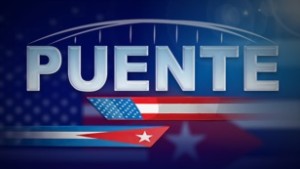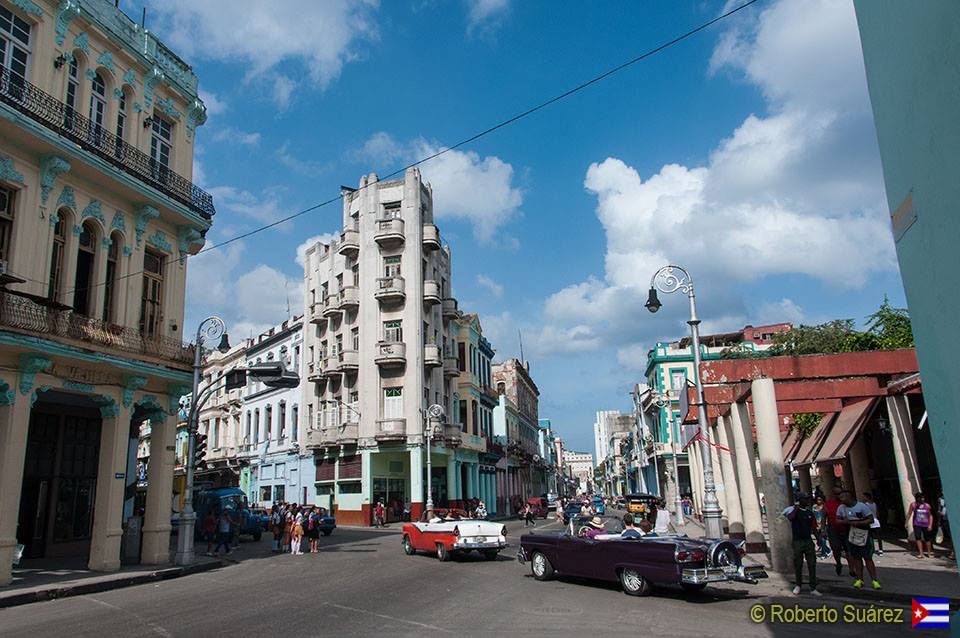CUBA: ONE YEAR LATER ..
Just over a year after President Barack Obama announced on December 17, 2014 the restoration of US diplomatic relations with Cuba, after half a century of antagonism, much it has changed … While many sectors the changes have brought prosperity to the island, many fear that the new relationship will bring an end to the Cuban Adjustment Act.
Walking through the busy streets of Havana, Cuba, earlier this year, Ruth Behar toured new boutiques, cafes, salsa dance studios and an ice cream shop that have sprung up around the city in recent years.
“This could be in New York, Soho might be,” said the professor of anthropology at the University of Michigan, who was born in Cuba and immigrated as a child with his parents to the US after the Cuban revolution. “I see a lot of optimism among artists and academics who expect more exchanges and opportunities, as well as among people who have connections, support of relatives abroad, and entrepreneurial skills,” said Behar, who began visiting the island 24 years ago and only this year has visited four times.
“This is an exciting time for those who have the means to invest in the new Cuba time. For those who can afford it, there are more restaurants and fun places to hang out than ever before, “he said. “While Cubans have a tradition of being able to invent and find solutions to economic scarcity, there is a marked and growing inequality.”
Just over a year after President Barack Obama announced last December 17 the restoration of US diplomatic relations with Cuba, after half a century of antagonism, much has changed.
The island was officially removed from the list of US state terrorism in May and this summer, the US Cuba and reopened their embassies. In a sign of its participation in the thawing of relations between the two countries, Pope Francis visited the island before his first visit to the US earlier this year. And President Obama has said he is interested in visiting the island before the end of his presidency.
While in many sectors the changes have brought prosperity to the island, many fear that the new relationship will bring an end to the Cuban Adjustment Act, which has prompted a new wave of immigration of Cubans to the United States Some estimate that 43,000 Cubans have fled by sea and land to the US this year alone.
.. “That, coupled with Cubans distrust their government is behind the recent exodus, which has caused considerable tension in the countries through which migrants pass, as Nicaragua and Costa Rica.
“People in Cuba is a generation that has lost faith in a better future on the island, so even the reestablishment of relations gives them hope for the future. Young people, who are the majority of migrants, lack of faith in a better future. If family ties permit, they try to leave. Are they political or economic migrants? They are both suffering because of the economic problems of the political system of communism, because they are unhappy with the government and distrust it. ”
“Today the markets allow farmers to sell their additional products freely on the market; morning market close. Today allow self-employed selling clothes they receive from their relatives in the US and of which everyone is in dire need, these morning close independent clothing stores. That is a pattern that has been repeated in Cuba during the last half century. Open shops, ciérrenlas “.
“The government says they close these efforts because they fear that self-employment is a way for capitalism goal back in the country. I think it is because the government wants to control everything and everyone, and afraid of people do not depend on them. ”
Behar says that he has seen the changes in Cuba are there to stay. But if that ends up being the best for the country remains to be seen.
“I worry about the people who depend on the socialist safety net. What will happen to those who are not able to jump on the bandwagon of private enterprise? The immigration crisis we are seeing now is a clear answer to the desperation some are feeling in Cuba “.
Agencies / America Economia / Internet Photos / Excerpts/TheCubanHistory.com
The Cuban History, Holywood.
Arnoldo Varona, Editor.
CUBA: UN AÑO DESPUÉS..
Poco más de un año después de que el presidente Barack Obama anunciara el 17 de diciembre de 2014 el restablecimiento de relaciones diplomáticas de EE.UU con Cuba, después de medio siglo de antagonismo, mucho ha cambiado… Si bien en muchos sectores los cambios han traído prosperidad a la isla, muchos temen que la nueva relación traerá el fin de la Ley de Ajuste Cubano.
Caminando por las concurridas calles de La Habana, Cuba, a principios de este año, Ruth Behar recorrió nuevas boutiques, cafés, estudios de baile de salsa y una tienda de helados que han brotado por toda la ciudad en los últimos años.
“Esto podría ser en Nueva York, podría ser Soho”, dijo la profesora de antropología en la Universidad de Michigan, quien nació en Cuba y, cuando niña emigró con sus padres a los EE.UU. después de la revolución cubana. “Veo mucho optimismo entre artistas y académicos que esperan más intercambios y oportunidades, así como entre las personas que tienen conexiones, apoyo de familiares en el extranjero, y habilidades empresariales “, dijo Behar, que comenzó a visitar la isla hace 24 años y sólo este año la ha visitado cuatro veces.
“Este es un momento muy emocionante para aquellos que tienen los medios para invertir en la nueva Cuba. Para aquellos que pueden permitírselo, hay más restaurantes y más lugares de diversión para pasar el rato que nunca antes “, dijo. “Mientras que los cubanos tienen una tradición de ser capaz de inventar y encontrar soluciones a la escasez económica, hay una desigualdad muy marcada y creciente”.
Poco más de un año después de que el presidente Barack Obama anunciara el pasado 17 de diciembre el restablecimiento de relaciones diplomáticas de EE.UU con Cuba, después de medio siglo de antagonismo, mucho ha cambiado.
La isla fue retirada oficialmente de la lista de terrorismo de estado de EE.UU en mayo y este verano, los EE.UU. y Cuba reabrieron sus respectivas embajadas. En una señal de su participación en el deshielo de las relaciones entre ambos países, el Papa Francisco visitó la isla antes de su primera visita a los EE.UU. a principios de este año. Y el presidente Obama ha dicho que está interesado en visitar la isla antes del final de su presidencia.
Si bien en muchos sectores los cambios han traído prosperidad a la isla, muchos temen que la nueva relación traerá el fin de la Ley de Ajuste Cubano, que ha impulsado una nueva ola de inmigración de cubanos a EE.UU. Algunos estiman que 43.000 cubanos han huido por mar y tierra a los EE.UU. solo este año.
..“Eso, sumado a la desconfianza los cubanos de en su gobierno está detrás de la reciente éxodo, que ha provocado tensiones considerables en los países por los cuales los migrantes pasan, como Nicaragua y Costa Rica.
“La gente en Cuba es una generación que ha perdido la fe en un futuro mejor en la isla, así que ni siquiera el restablecimiento de las relaciones les da esperanza para el futuro. Los jóvenes, quienes son la mayoría de los inmigrantes, carecen de fe en un futuro mejor. Si sus lazos familiares lo permiten, tratan de salir. ¿Son migrantes políticos o económicos? Son ambos, porque sufren de los problemas económicos del sistema político, del comunismo, porque están descontentos con el gobierno y desconfían de éste.”
“Hoy día permiten a los mercados de agricultores vender sus productos adicionales libremente en el mercado; mañana cierran los mercados. Hoy día permiten que trabajen por cuenta propia vendiendo la ropa que reciben de sus familiares en los EE.UU. y de la cual todo el mundo está en extrema necesidad, mañana cierran estas tiendas de ropa independientes. Ese es un patrón que se ha repetido en Cuba durante el último medio siglo. Abran tiendas, ciérrenlas”.
“El gobierno dice que cierran estos esfuerzos porque temen este trabajo por cuenta propia será una manera para que el capitalismo se meta de nuevo en el país. Creo que es porque el gobierno quiere controlarlo todo y a todos, y tiene miedo de la gente no dependa de ellos.”
Behar dice que por lo que ha visto, los cambios en Cuba están ahí para quedarse. Pero si eso termina siendo lo mejor para el país aún está por verse.
“Me preocupan las personas que dependen de la red de seguridad socialista. ¿Qué va a pasar a los que no son capaces de subirse al carro de la empresa privada? La crisis de inmigración que estamos viendo ahora es una clara respuesta a la desesperación algunos están sintiendo en Cuba”.
Agencies/America Economia/Internet Photos/Extractos/TheCubanHistory.com
The Cuban History, Holywood.
Arnoldo Varona, Editor.



 CUBA: ONE YEAR AFTER.. + CUBA: UN AÑO DESPUÉS..
CUBA: ONE YEAR AFTER.. + CUBA: UN AÑO DESPUÉS..


